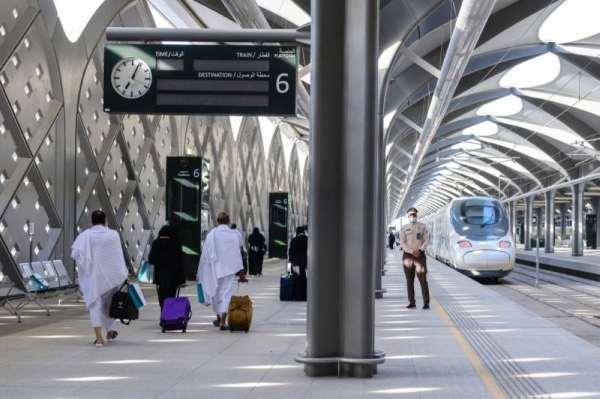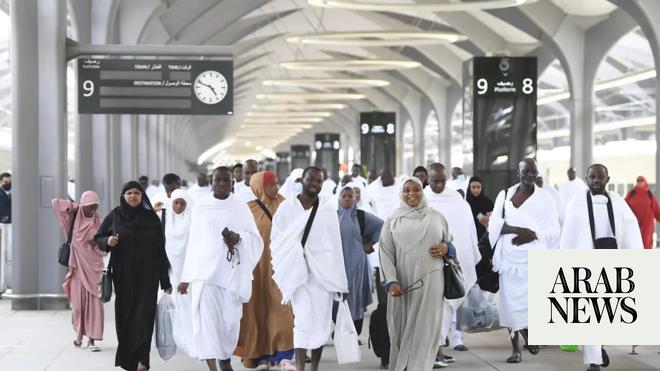
New Delhi vary of Islamabad"s intention behind the visa-free corridor, says analyst
Kartarpur corridor broke the ice between estranged nuclear neighbors
NEW DELHI: Indian news reports say that New Delhi is not only planning to cap the number of visitors per day but also fix a time limit in which pilgrims must finish the pilgrimage.
Last month, Pakistan and India opened the Kartarpur corridor — a border corridor that connects the Sikh shrine of Dera Baba Nanak Sahib, located on the Indian side of Punjab province, with the Gurdwara Darbar Sahib Kartar on the Pakistani side of the border.
The major part of the over 4-km-long border is in Pakistan where both Islamabad and New Delhi are building the visa-free corridor on their respective sides. The corridor will facilitate the easy movement of Sikh pilgrims from India to the resting place of Guru Nanak in Kartarpur.
An attempt to reach out to the Indian Foreign Ministry and the Home Ministry was unsuccessful.
The ruling Bharatiya Janata Party (BJP), however, says that India must be “doubly cautious that such places of religious significance are not used by vested interests to launch their own propaganda that seeks to foment trouble in India.”
“We have already seen that those championing Khalistan separatist movement in Punjab find favor in the Pakistani establishment,” said Sudesh Verma, the national spokesperson of the BJP.
“India has to protect its legitimate self-interest,” Verma said to justify the proposed restriction on pilgrims going to the other side of the border.
Talking to Arab News, Verma said: “Vested interests have often tried to use religion to justify militancy and terrorism. India knows this since it suffered due to terrorist activities in Punjab in the 1980s.”
“But Sikhs in India have rejected terrorism and decided to march ahead in peace and harmony with other communities,” added Verma.
However, Shiromani Akali Dal (SAD), a Punjab-based regional party and one of the oldest BJP allies, said: “Too many restrictions should not be put on pilgrims.”
“Security concerns need to be appreciated no doubt, but efforts should also be made so that too many restrictions are not imposed on the pilgrims and they are able to visit comfortably,” said Dr. Daljit Cheema, spokesperson of the SAD.
The Congress Party, which rules Punjab, said that “too many restrictions will discourage tourists and pilgrims.”
“I feel that if you put a cap on the number of visitors per day, people will be discouraged. Their sentiments would be hurt,” said Sukhjinder Randhawa, a senior leader of the Congress Party.
“The government should not limit the pilgrim flow. If Pakistan does not have any problem, then we should also not have any problem. There would be a corridor from one side and a return way from the other side,” Randhawa told Arab News.
“Khalistan is just a mirage. People in Punjab don’t support Khalistan separatism. There might be some people supported by agencies who talk about Khalistan but they don’t enjoy popular support. Those who are sitting in a foreign land can say anything but no Sikh in Punjab wants Khalistan,” added the Congress leader.
Professor of political analysis Ronki Ram of Punjab University underlines that Pakistan understands the implications of instigating Khalistan separatism. "It knows such acts will further undermine its status in the international community. I don’t think Islamabad will indulge openly in divisive politics,” he said.
“At this moment the issue of regulating the movement through the corridor is a part of the larger political calculations borne out of mistrust that afflicts both India and Pakistan. In that situation, it would not be easy to allow people"s free movement," Ram added.
Punjab-based senior journalist Ravinder Singh Robin said: “Both the countries are now riding on a tiger so far as the Kartarpur corridor is concerned."
“One is trying to woo the Sikhs and other is trying to stop its own people from getting into possible traps. Mistrust is clearly seen between the two countries and it reflects the way they perceive their security concerns,” said Robin, who was part of the media team which visited Pakistan last month at the time of the foundation-laying ceremony of the Kartarpur corridor.












